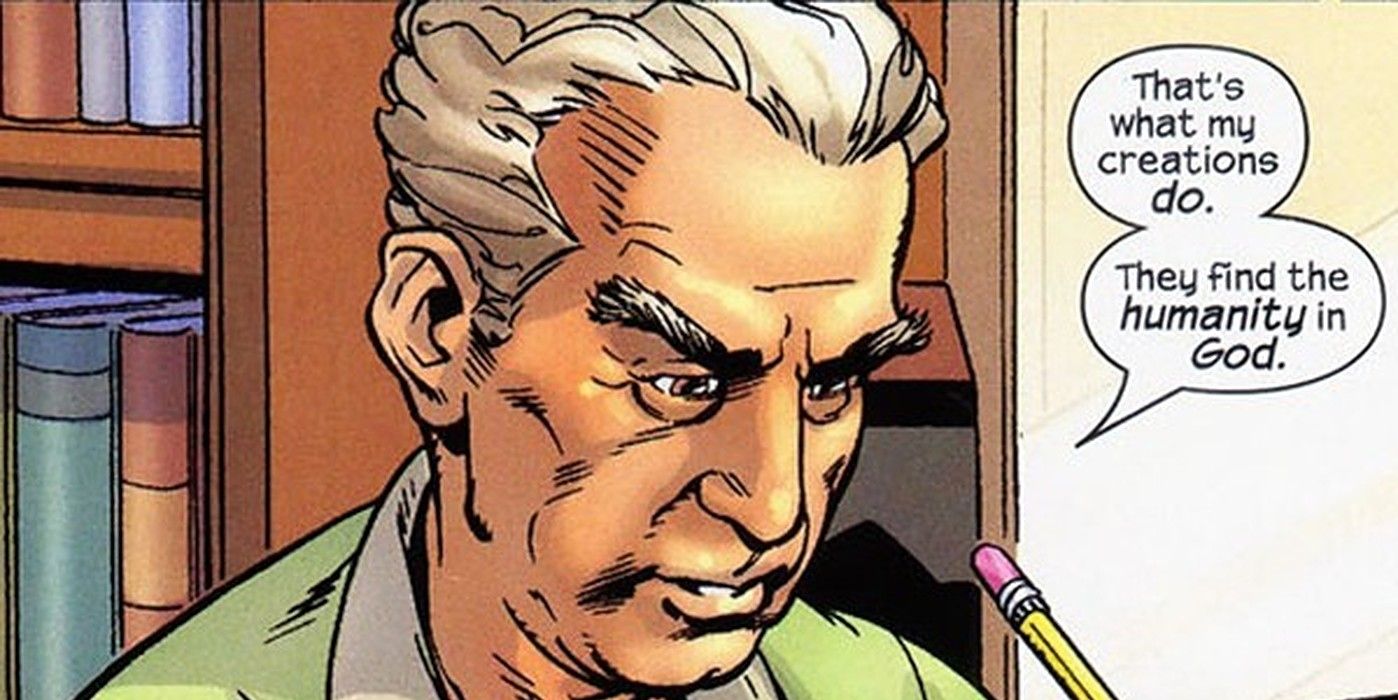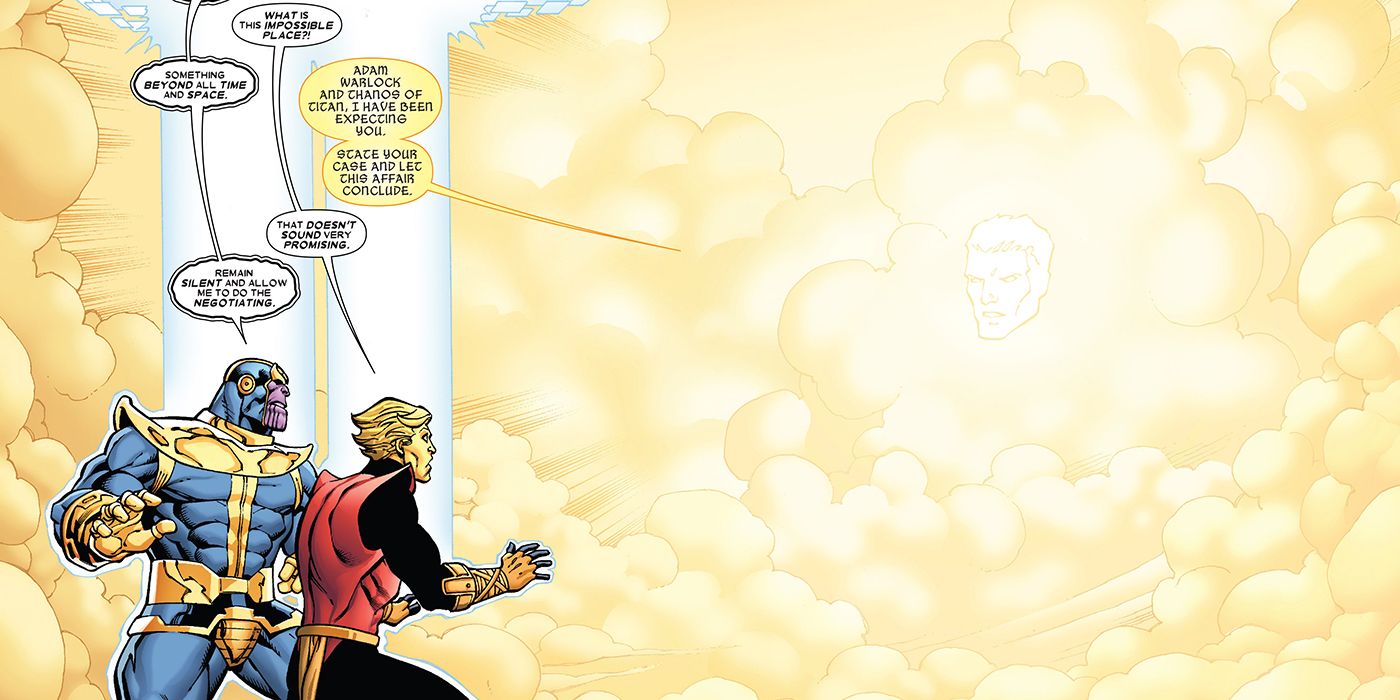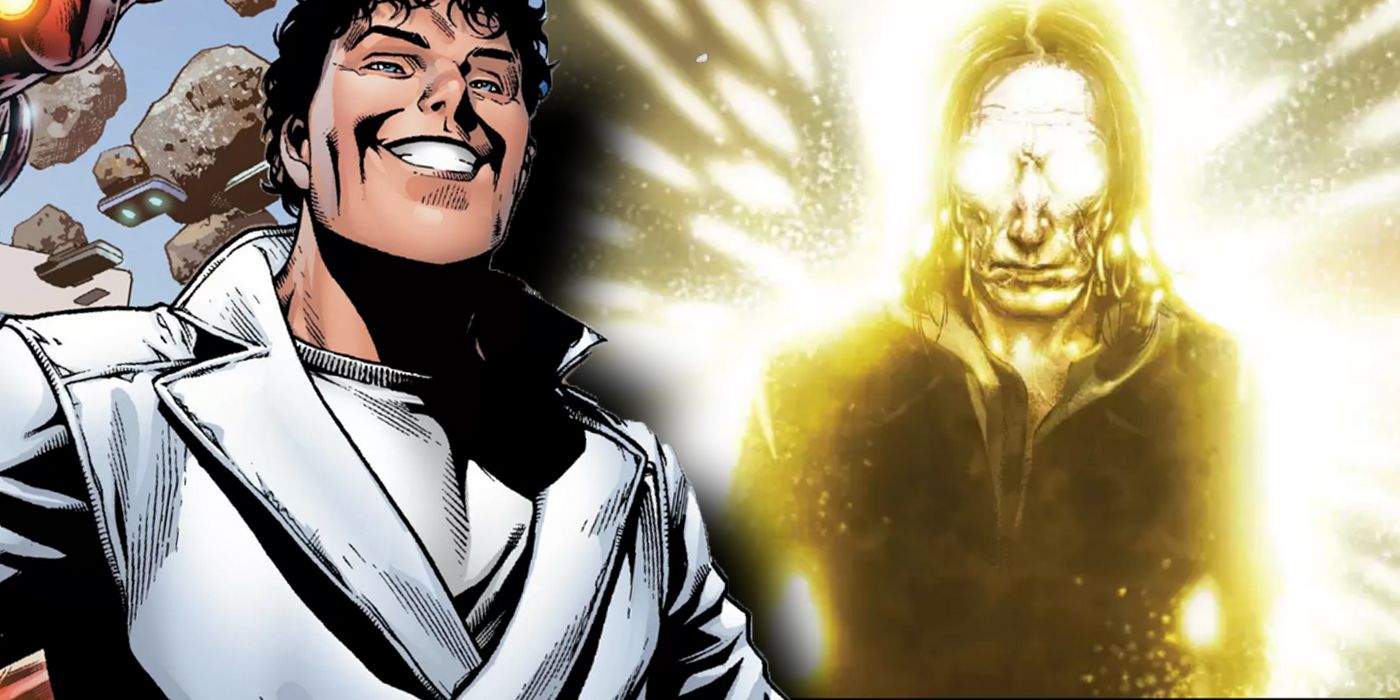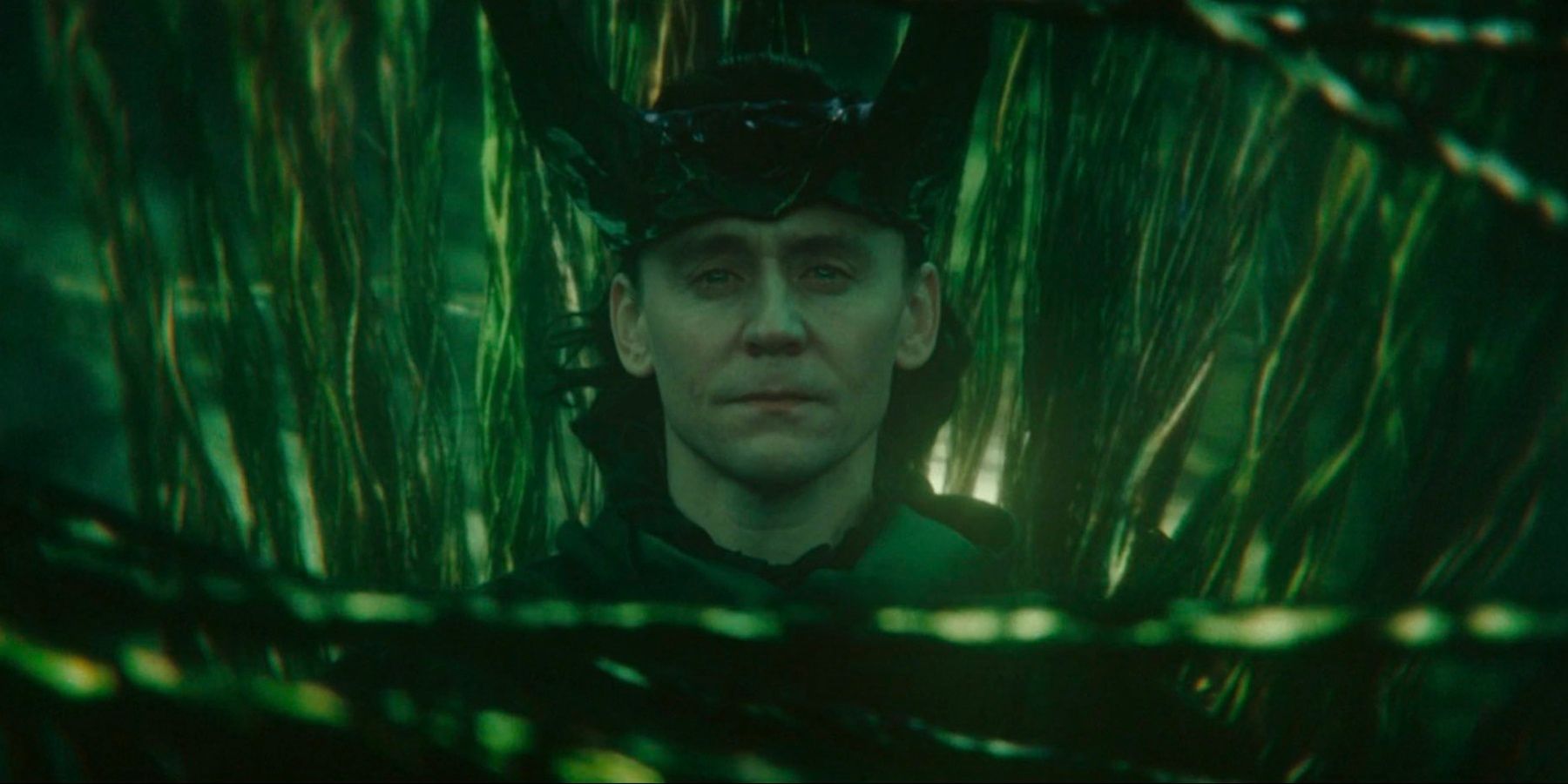Summary
- The One-Above-All is the supreme ruler of the Marvel Multiverse and cannot be defeated.
- The One-Above-All has appeared in various forms, including as Jack Kirby, the co-creator of Marvel comics.
- The One-Above-All is unlikely to appear in the Marvel Cinematic Universe due to its cosmic nature and the desire for more relatable and grounded storytelling.
The Marvel Comics Multiverse is home to an infinite number of incredibly powerful beings, some of whom are referred to as gods by others, and some who call themselves gods. However, there is only one true god in the Multiverse, and they're too powerful to ever show up in the Marvel Cinematic Universe.
In every incarnation, the One-Above-All is portrayed not as a character, but as force of nature that occupies and shapes every single thing in the multiverse. Unlike Thanos or Galactus, who are depicted as ultra-powerful villains to be defeated or outsmarted, the One-Above-All cannot be beaten. It simply exists as a constant.
Updated by Timothy Blake Donohoo on November 30, 2023: The scope of the Marvel Cinematic Universe has increased, with the movies currently in the middle of the "Multiverse Saga." Even as this has expanded the types of stories told in the shared universe, certain concepts are still absent. Likewise, some fans and moviegoers aren't as receptive to these more esoteric concepts, so elements such as the One-Above-All are still out of reach.
The God of the Marvel Multiverse Debuted as Jack Kirby
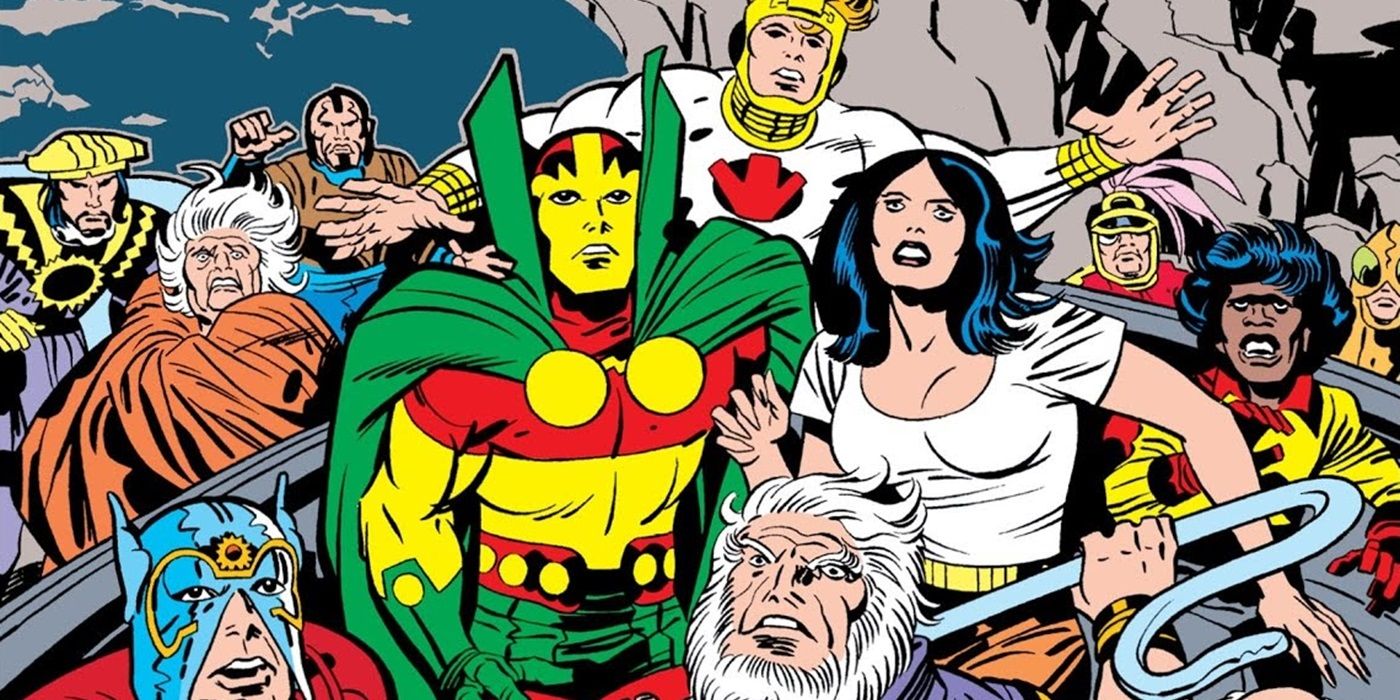
50 Years Ago, Jack Kirby Drew His Original Fourth World Saga to a Close With a Wedding
A look back to 50 years ago, when Jack Kirby finished his original Fourth World Saga with a notable weddingCreated by Mark Waid and Mike Wieringo, the One-Above-All debuted in Fantastic Four #511. It is the supreme ruler of the Marvel Multiverse, and the ultimate source of everything good in every realm. The Fantastic Four were in Heaven, looking for the soul of Ben Grimm, when they stumbled onto a door seemingly created from a mix of Reed Richards' inventions and The Thing's stone skin. When they entered the door, they found a quaint home office with a man, bearing the visage of legendary comic creator Jack Kirby, drawing at his desk.
While he can adopt many different forms, the One-Above-All explained that people tend to "find the humanity in God," and appeared to the Fantastic Four in Kirby's likeness. As he spoke, he continued drawing, and received a call from his "collaborator," who was heavily implied to be fellow Marvel legend Stan Lee. The One-Above-All as Kirby revived Ben Grimm, and fixed Reed's damaged face, then sent the team on their way, giving them a drawing that hinted at their happy future, forever united as a family. By initially portraying the One-Above-All as the Fantastic Four's real-life co-creator, it cemented the deity as the most powerful force in the entire multiverse.
Marvel's One-Above-All Has Taken Many Forms
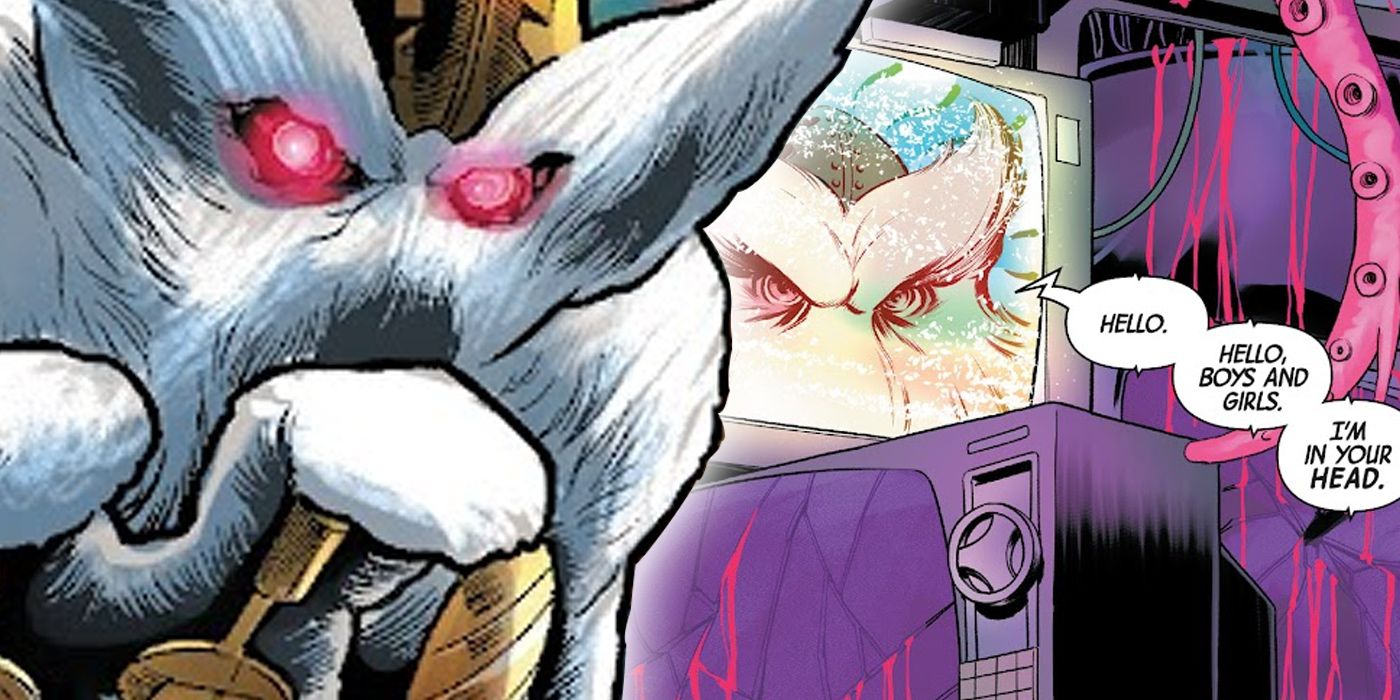
31 Days Of Halloween: Immortal Hulk #32: "Xemnu Returns"
The Immortal Hulk is best known for its body horror and supernatural ties, but Xemnu's return in Issue #32 cleverly subverts those tropes.Since the One-Above-All debuted as Jack Kirby, the entity has gone on to feature in a variety of stories. When Aunt May was dying, it took the form of a homeless man to help Peter Parker come to terms with her eventual death, and to keep his faith in the world. And when Earth-616 was destroyed, Thanos and an alternate universe version of Adam Warlock had a brief conversation with the One-Above All, who called itself Above-All-Others. Thanos convinced it to restore their universe, in exchange for Adam Warlock replacing the recently deceased Living Tribunal.
While the One-Above-All is all-powerful, it has a counterbalance and a dark side in the One Below All, who serves as the ultimate personification of destruction and evil. First debuting in Immortal Hulk (by Al Ewing and Joe Bennett), it fused with Bruce Banner's abusive father, Brian Banner in an attempt to kill the hero and destroy the multiverse. To accomplish its goal, it started possessing gamma mutates and eventually came to possess the Leader. The One Below All plunged Bruce Banner into the Below-Place but was eventually stopped by the Hulk's different personalities. The Hulks later separated the Leader from the One Below All, leaving it as a disembodied counterbalance to the One-Above-All once again.
Why The One-Above-All May Be Too Cosmic for the MCU
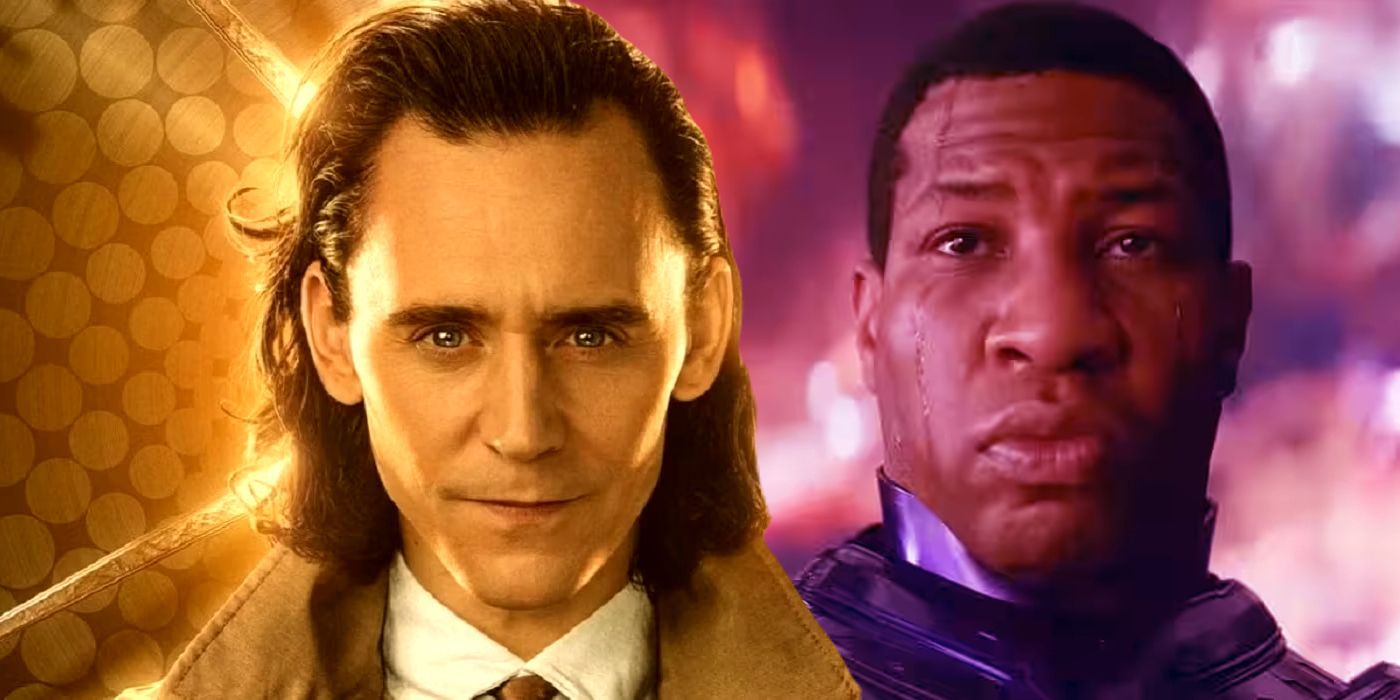
Loki is the Last Hope for the MCU's Multiverse Saga
After several misses and flops, Loki Season 2 could be the last chance for the Marvel Cinematic Universe to salvage the Multiverse Saga.Due to its omnipotence and "out there" nature, neither the One-Above-All nor its many forms will likely ever appear in the Marvel Cinematic Universe. A big reason for this is because of the massive power imbalance it would create. That's without even mentioning the lack of scale in general from such a grandiose concept. It's the kind of cosmic, earth-shattering storytelling that many fans are ready for the MCU to move beyond. The general downturn in quality for the movies has been coupled with more overtly "comic booky" concepts. These include the multiverse, which is a premise that many have long since tired of.
Thus, the general desire is for the Marvel Cinematic Universe to dial things back to a more relatable and grounded level, which probably needed to happen after the events of Avengers: Endgame. That's likely going to happen to some extent with projects under the new Marvel Spotlight banner, with these shows not at all being the kind of thing that The One-Above-All would be appropriate in. Most importantly, the Fantastic Four has yet to be formally introduced in the MCU, so the irony of them meeting a recreation of Jack Kirby might still be years away from being seen on the big screen. The conflicting nature of deities in the Marvel Cinematic Universe is another roadblock for adapting The One-Above-All.
Gods In the MCU
Asgardians and Magic
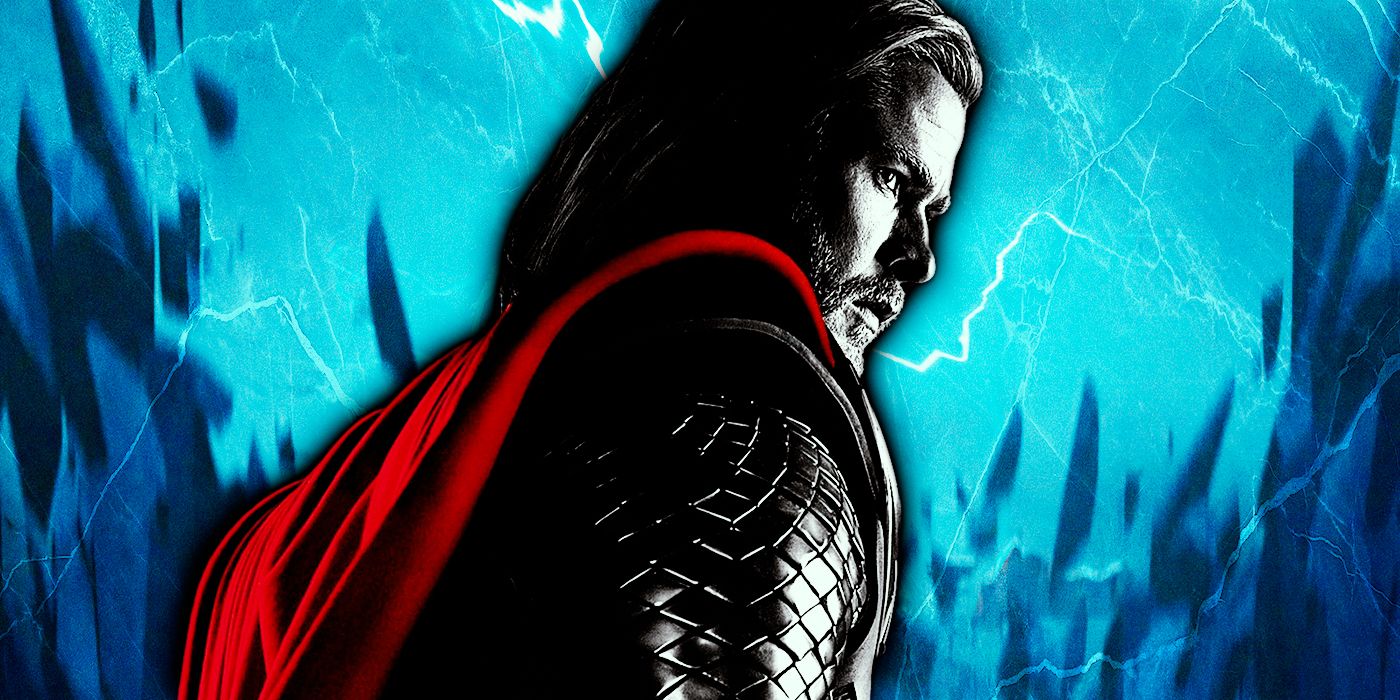
A Darker Thor 5 Can Adapt the God of Thunder's Underrated Run
Thor 5 is supposedly happening and being helmed by director Gareth Edwards, which presents the chance to do the God of Thunder justice one last time.In the Marvel Cinematic Universe, Thor and the Asgardians are initially portrayed as being more along the lines of highly advanced aliens than actual gods. Worshiped by humanity in the past, they're thus defined as deities in their minds, despite the reality of the situation. Odin even reminds Thor of this in Thor: The Dark World, stating bluntly that their kind are "not gods." Even magic is initially handled in an almost scientific way, reducing the sense of cosmic or divine grandeur.
Needless to say, The One-Above-All would be entirely out of place. This more grounded characterization of gods has changed somewhat in more recent MCU entries. Most notably, Thor: Love and Thunder and the Moon Knight TV series featured gods from other pantheons. In the case of the former, however, the silly nature of the contentious movie made even these gods feel less than divine. Ironically, it's this sense of irreverence that might perfectly segue into the introduction of The One-Above-All as Jack Kirby, though it might need to be a gag saved for at least Avengers: Secret Wars.
Is Loki the One-Above-All In the MCU?
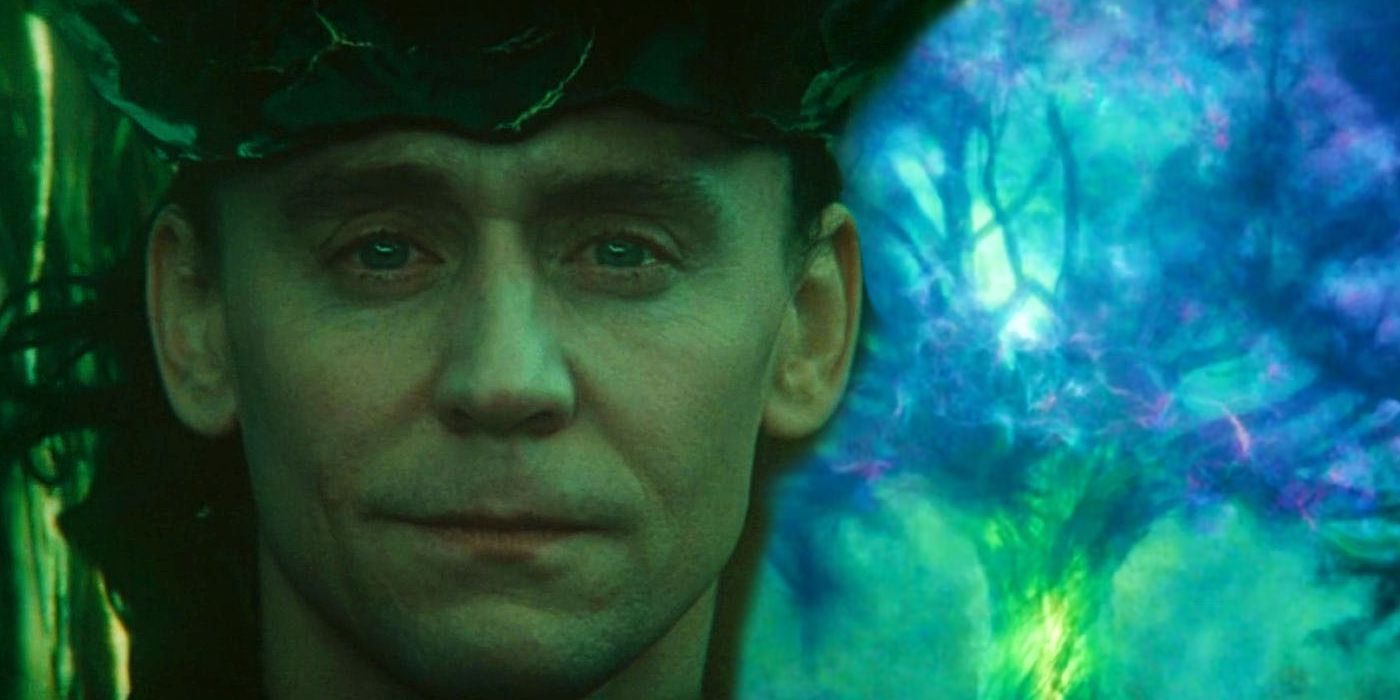
The Loki Season 2 Finale Confirms Norse Myth Connections
Loki Season 2 features an impressive and emotional finale. But its effectiveness may tie to the Norse mythos that inspired the character.Some believe that the second season of the MCU Disney+ streaming series Loki has the God of Mischief becoming The One-Above-All. The show ties into the aforementioned Multiverse Saga, with the main antagonist being the villainous Kang and his variants. Thus, The One-Above-All appearing in some capacity might make some sense. Loki being the one to attain the role would also be an ironic event to cap off his development as a character, but it's sadly not the case.
Loki becomes the God of Stories, with this being the title for his new role. In essence, he looks over the multiverse as a whole, which is a very similar role to The One-Above-All. This very well could be the One-Above-All MCU equivalent, but until it's directly stated as such, the roles are separate. The biggest similarities are that both titles describe the God of the Multiverse. The reason this idea works so well is that it's arguably "grounded" in a character that fans have come to know for over a decade. This makes the cosmic concept a bit easier to digest, and it's so far the best use of the multiverse in the MCU yet.
The Rival of The One-Above-All May Never Appear In the MCU
As mentioned, The One-Above-All is opposed by The One-Below-All. This devilish figure debuted in Al Ewing and Joe Bennett's Immortal Hulk, with the story tying the entity to The Hulk and gamma radiation. Immortal Hulk was a highly lauded series, with most considering it the best Hulk comic book run ever written. Thus, it's no wonder that many have requested the story to be adapted in some way in the Marvel Cinematic Universe. Sadly, this is likely to never happen, and it's due to how Hulk has been handled.
For almost all of the MCU's history beyond its inaugural year, there hasn't been a solo Hulk project. This is due to the character's cinematic rights being owned by Universal, the result of Marvel Comics selling off character rights to various movie studios several years beforehand. This meant that further MCU Hulk appearances were ensemble pieces such as the Avengers movies or Thor: Ragnarok. Supposedly, the rights to the character have now reverted to Marvel Studios, allowing for solo movies based around The Hulk. Unfortunately, this might be too little, too late for Hulk, The One-Above-All and The One-Below-All.
The MCU is in decline, with the failure of recent movies such as The Marvels highlighting this fact. Thus, it's questionable if even an Immortal Hulk adaptation would be of interest to the mass moviegoing audience. Likewise, the series' material is particularly dark and filled with body horror, which is likely a direction that Marvel Studios (known for jokes and quippy comedy) might avoid. It's a shame, as it's exactly the direction that Hulk needs to get back on track after becoming something of a joke in Avengers: Endgame. Without Hulk taking on his most immortal form, The One-Below-All has no real reason to be introduced. Thus, it's continually unlikely for even The One-Above-All to make his debut in the Marvel Cinematic Universe.
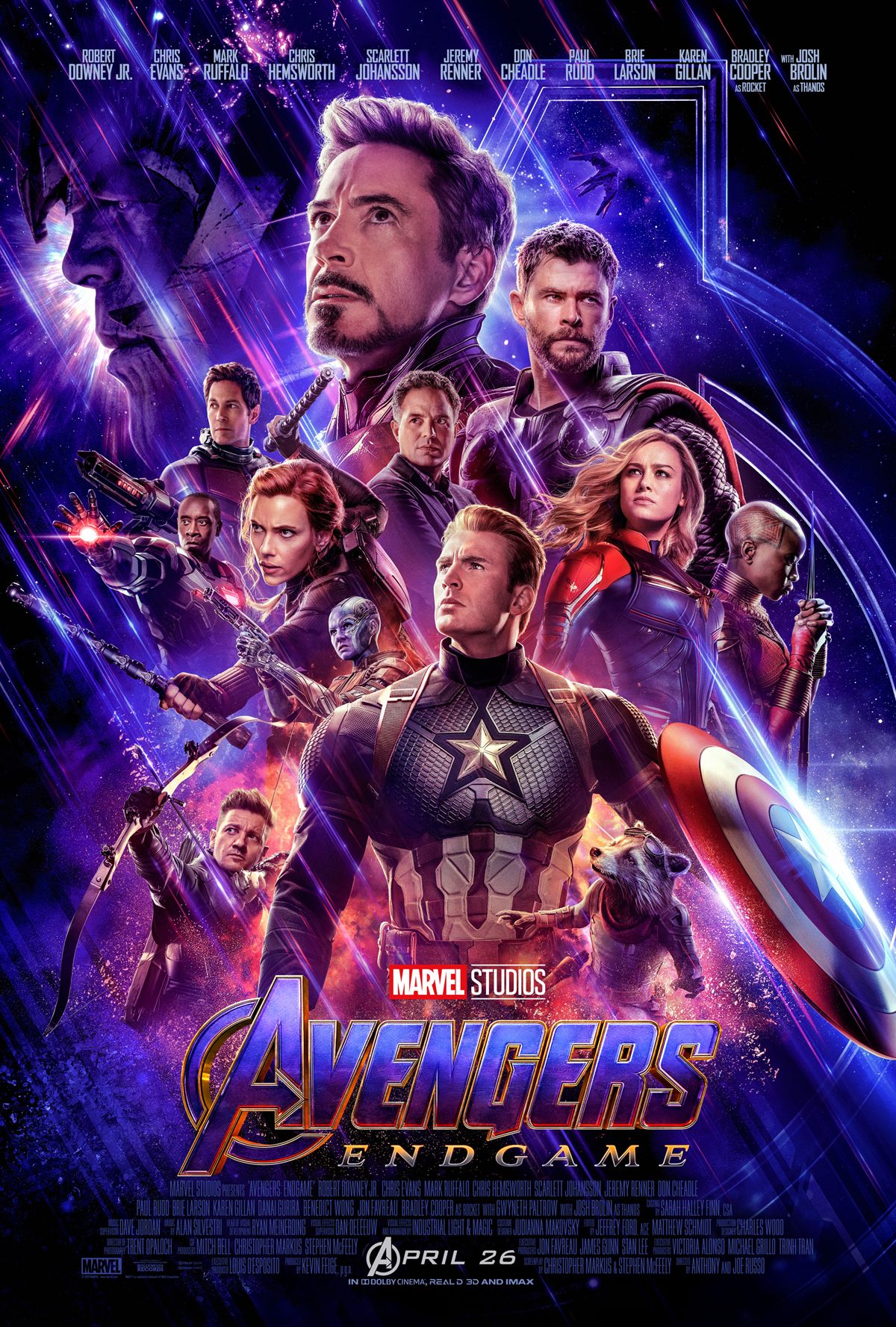
Marvel Cinematic Universe
Created by Marvel Studios, the Marvel Cinematic Universe follows heroes across the galaxy and across realities as they defend the universe from evil.
- First Film
- Iron Man
- Latest Film
- The Marvels
- First TV Show
- WandaVision
- Latest TV Show
- Loki
- Character(s)
- Iron Man , Captain America , The Hulk , Ms. Marvel , Hawkeye , Black Widow , Thor , Loki , Captain Marvel , Falcon , Black Panther , Monica Rambeau , Scarlet Witch


